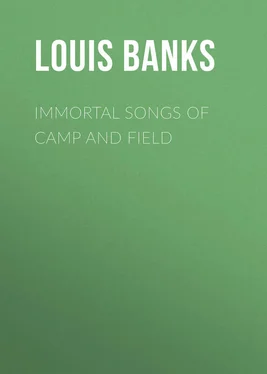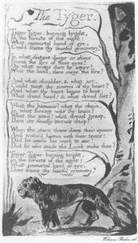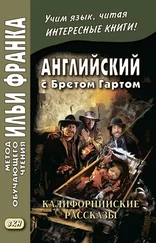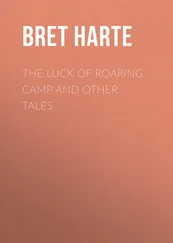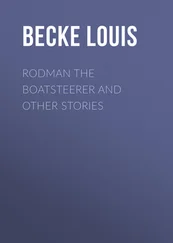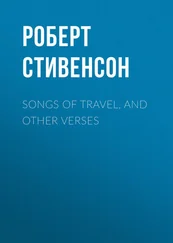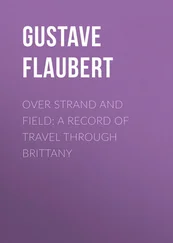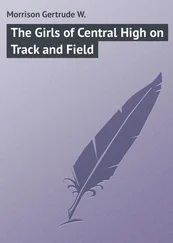Louis Banks - Immortal Songs of Camp and Field
Здесь есть возможность читать онлайн «Louis Banks - Immortal Songs of Camp and Field» — ознакомительный отрывок электронной книги совершенно бесплатно, а после прочтения отрывка купить полную версию. В некоторых случаях можно слушать аудио, скачать через торрент в формате fb2 и присутствует краткое содержание. Жанр: foreign_antique, foreign_prose, на английском языке. Описание произведения, (предисловие) а так же отзывы посетителей доступны на портале библиотеки ЛибКат.
- Название:Immortal Songs of Camp and Field
- Автор:
- Жанр:
- Год:неизвестен
- ISBN:нет данных
- Рейтинг книги:5 / 5. Голосов: 1
-
Избранное:Добавить в избранное
- Отзывы:
-
Ваша оценка:
- 100
- 1
- 2
- 3
- 4
- 5
Immortal Songs of Camp and Field: краткое содержание, описание и аннотация
Предлагаем к чтению аннотацию, описание, краткое содержание или предисловие (зависит от того, что написал сам автор книги «Immortal Songs of Camp and Field»). Если вы не нашли необходимую информацию о книге — напишите в комментариях, мы постараемся отыскать её.
Immortal Songs of Camp and Field — читать онлайн ознакомительный отрывок
Ниже представлен текст книги, разбитый по страницам. Система сохранения места последней прочитанной страницы, позволяет с удобством читать онлайн бесплатно книгу «Immortal Songs of Camp and Field», без необходимости каждый раз заново искать на чём Вы остановились. Поставьте закладку, и сможете в любой момент перейти на страницу, на которой закончили чтение.
Интервал:
Закладка:
The next to the last stanza of Adams and Liberty was not in the song as originally written. Paine was dining with Major Benjamin Russell, when he was reminded that his song had made no mention of Washington. The host said he could not fill his glass until the error had been corrected, whereupon the author, after a moment’s thinking, scratched off the lines which pay such a graceful tribute to the First American: —
“Should the tempest of war overshadow our land,
Its bolts could ne’er rend Freedom’s temple asunder;
For, unmov’d, at its portal would Washington stand,
And repulse with his breast the assaults of the thunder!
His sword from the sleep
Of its scabbard would leap,
And conduct, with its point, every flash to the deep;
For ne’er shall the sons of Columbia be slaves,
While the earth bears a plant, or the sea rolls its waves.”
Instead of being added to the hymn it was inserted as it here appears. The second, fourth, and fifth stanzas have been usually omitted in recent publications of the hymn.
The brilliant genius of Paine was sadly eclipsed by strong drink, that dire foe of many men of bright literary promise. His sun, which had risen so proudly, found an untimely setting about the beginning of the war of 1812.
YANKEE DOODLE
Father and I went down to camp
Along with Captain Gooding,
And there we saw the men and boys,
As thick as hasty pudding.
Yankee Doodle, keep it up,
Yankee Doodle Dandy!
Mind the music and the step,
And with the gals be handy!
And there we see a thousand men
As rich as Squire David,
And what they wasted every day, —
I wish it had been savèd.
The ’lasses they eat up every day
Would keep our house all winter, —
They have so much that I’ll be bound
They eat whene’er they’ve a mind to.
And there we see a whopping gun,
As big as a log of maple,
Mounted on a little cart, —
A load for father’s cattle.
And every time they fired it off
It took a horn of powder,
And made a noise like father’s gun,
Only a nation louder.
I went as near to it
As ’Siah’s underpinning;
Father went as nigh agin, —
I thought the devil was in him.
Cousin Simon grew so bold,
I thought he meant to cock it;
He scared me so, I streaked it off,
And hung to father’s pocket.
And Captain Davis had a gun
He kind o’ clapped his hand on,
And stuck a crooked stabbing-iron
Upon the little end on ’t.
And there I saw a pumpkin shell
As big as mother’s basin;
And every time they sent one off,
They scampered like tarnation.
I saw a little bar’el, too,
Its heads were made of leather;
They knocked on it with little plugs,
To call the folks together.
And there was Captain Washington,
With grand folks all about him;
They says he’s grown so tarnal proud,
He cannot ride without them.
He had on his meeting-clothes,
And rode a slapping stallion,
And gave his orders to the men, —
I guess there was a million.
And then the feathers in his hat,
They were so tarnal fine-ah,
I wanted peskily to get
To hand to my Jemima.
And then they’d fife away like fun
And play on cornstalk fiddles;
And some had ribbons red as blood
All wound about their middles.
The troopers, too, would gallop up,
And fire right in our faces;
It scared me a’most to death
To see them run such races.
And then I saw a snarl of men
A-digging graves, they told me,
So tarnal long, so tarnal deep, —
They allowed they were to hold me.
It scared me so I hooked it off,
Nor stopped as I remember,
Nor turned about, till I got home,
Locked up in mother’s chamber.
It is certainly the tune of Yankee Doodle , and not the words of this old song, which captured the fancy of the country and held its sway in America for nearly a hundred and fifty years.
The tune, however, is much older than that. It has been claimed in many lands. When Kossuth was in this country making his plea for liberty for Hungary, he informed a writer of the Boston Post that, when the Hungarians that accompanied him first heard Yankee Doodle on a Mississippi River steamer, they immediately recognized it as one of the old national airs of their native land, one played in the dances of that country, and they began to caper and dance as they had been accustomed to do in Hungary.
It has been claimed also in Holland as an old harvest song. It is said that when the laborers received for wages “as much buttermilk as they could drink, and a tenth of the grain,” they used to sing as they reaped, to the tune of Yankee Doodle , the words, —
“Yanker, didel, doodle down,
Diddle, dudel, lanther,
Yanke viver, voover vown,
Botermilk und tanther.”
From Spain, also, comes a claim. The American Secretary of Legation, Mr. Buckingham Smith, wrote from Madrid under date of June 3, 1858: “The tune of Yankee Doodle , from the first of my showing it here, has been acknowledged, by persons acquainted with music, to bear a strong resemblance to the popular airs of Biscay; and yesterday, a professor from the north recognized it as being much like the ancient sword-dance played on solemn occasions by the people of San Sebastian. He says the tune varies in those provinces. The first strains are identically those of the heroic Danza Esparta of brave old Biscay.”
France puts in a claim, and declares that Yankee Doodle is an old vintage song from the southern part of that land of grapes; while Italy, too, claims Yankee Doodle for her own.
The probabilities are that it was introduced into England from Holland.
Yankee Doodle became an American institution in June, 1755. General Braddock, of melancholy fate, was gathering the colonists to an encampment near Albany for an attack on the French and Indians at Niagara. The countrymen came into camp in a medley of costumes, from the buckskins and furs of the American Indian to some quaint old-fashioned military heirloom of a century past. The British soldiers made great sport of their ragged clothes and the quaint music to which they marched. There was among these regular troops from England a certain Dr. Richard Shuckburg, who could not only patch up human bodies, but had a great facility in patching up tunes as well. As these grotesque countrymen marched into camp, this quick-witted doctor recalled the old air which was sung by the cavaliers in ridicule of Cromwell, who was said to have ridden into Oxford on a small horse with his single plume fastened into a sort of knot which was derisively called a “macaroni.” The words were, —
“Yankee Doodle came to town,
Upon a Kentish pony;
He stuck a feather in his cap,
Upon a macaroni.”
Doctor Shuckburg at once began to plan a joke upon the uncouth newcomers. He set down the notes of Yankee Doodle , wrote along with them the lively travesty upon Cromwell, and gave them to the militia musicians as the latest martial music of England. The band quickly caught the simple and contagious air which would play itself, and in a few hours it was sounding through the camp amid the laughter of the British soldiers. It was a very prophetic piece of fun, however, which became significant a few years later. When the battles of Concord and Lexington began the Revolutionary War, the English, when proudly advancing, played along the road God save the King ; but after they had been routed, and were making their disastrous retreat, the Americans followed them with the taunting Yankee Doodle .
Читать дальшеИнтервал:
Закладка:
Похожие книги на «Immortal Songs of Camp and Field»
Представляем Вашему вниманию похожие книги на «Immortal Songs of Camp and Field» списком для выбора. Мы отобрали схожую по названию и смыслу литературу в надежде предоставить читателям больше вариантов отыскать новые, интересные, ещё непрочитанные произведения.
Обсуждение, отзывы о книге «Immortal Songs of Camp and Field» и просто собственные мнения читателей. Оставьте ваши комментарии, напишите, что Вы думаете о произведении, его смысле или главных героях. Укажите что конкретно понравилось, а что нет, и почему Вы так считаете.
